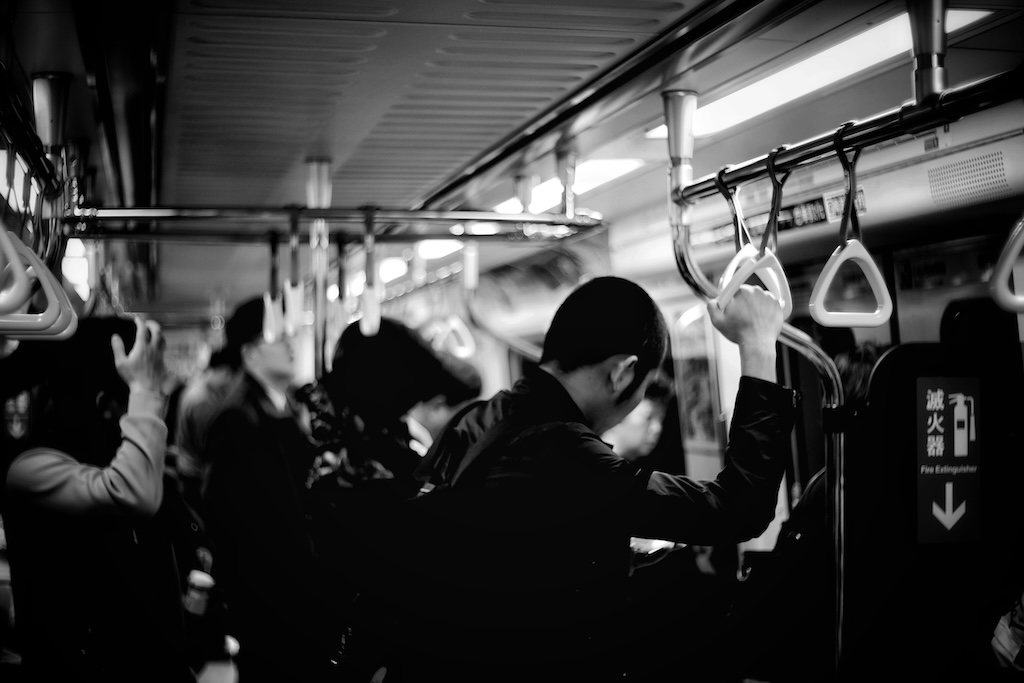Author:Jenna Lynn Cody
Photographer:Etienne Girardet, Ma Joseph, Mihai Surdu, Brooke Cagle, Christin-Hume, ZSun Fu
On the first day of my foundational teacher training courses, we do an icebreaker during which new trainees have to guess how the number 13 relates to me.
“How long you’ve lived in Taiwan,” they often say. But no, that number is 18.
“How long you’ve been a teacher,” most reply. Wrong again: that’s somewhere over 20, depending on how you calculate it.
“Your child is 13 years old,” I occasionally hear. This is both a reasonable guess — I’m old enough to have a child that age — and completely wrong.

What’s more, it feels far less likely that a new crop of trainees would venture such a guess if their trainer were male. Most of my teacher trainees are Taiwanese women of various ages. Most of my colleagues and teacher training peers are foreign men. I sometimes wonder why that is.
As for the personal significance of number 13, I’ll let that remain a secret. All I’ll say is that next year, it will be 14.
Those double-digit numbers, though — every time I start a new course, they prompt me to reflect on almost two decades of living and working in Taiwan as an expat woman. It’s easy to go negative on work culture in Taiwan and frankly, the working world in general. But if I’ve stayed this long and been happy in Taiwan, surely there must be reasons why.
Navigating Work Realities
Most of my work experiences in Taiwan have either been with companies that hire many, if not mostly foreigners: I spent my first year at an outpost of a mediocre cram school. Not the worst, but not the best. Then I moved to a locally-run Business English institute, which is in the running for the most heinous office culture I’ve ever endured. I pursued multiple teaching certifications and a Master’s in the field, eventually going freelance. Now I split my time between various teacher training gigs and a different Business English institute with a much friendlier work environment.

Certainly, there have been downsides. Taiwan has very long work hours and salaries are lower than in most other developed nations. According to 2022 statistics, Taiwanese work about as much as Singaporeans, for approximately half the pay, and about 400 hours more per year than South Koreans, for around 25% less remuneration. In 2022, Japanese workers put in about the same number of hours as South Koreans, for almost double the pay, and Americans fare only slightly better.
These statistics don’t affect expat workers, who often come from wealthy Western countries (foreign blue-collar workers make up the majority of immigrants in Taiwan, and tend to have a rather different experience). However, it doesn’t feel good to find local working hours unacceptably long, while also knowing that the only thing protecting you from working similar hours is your white, or at least Western, privilege. What’s more, it can bleed into one’s work: after-hours messages, overly tight deadlines, and the occasional gaslighting. My first job in Taiwan — the mediocre cram school — tried to convince me that working six days a week was normal for teachers around the world, and one day a week was sufficient to recharge. Neither is true.
If it’s so bad, though, why stay in Taiwan?
I could earn more in, say, Japan or South Korea, and the cost of living in both countries isn’t currently that much higher. This is where being a woman matters. Over nearly two decades in Taiwan, in every workplace but one, I felt equally respected to men. Most of my female friends, both local and expat, have voiced similar observations. It’s hardly perfect, but I’ve seen women get more respect, and occupy more positions of power, than most of the rest of Asia.

This may be another effect of white privilege, as Taiwan is hardly free of sexism in the workplace — the recent #MeToo scandals have made that clear. Compared to other Asian countries, however, Taiwan seems to be on the right track to improving gender equality.
Unveiling Cultural Nuances
Expectations around what constitutes presentability for women in Taiwanese workplaces matter a lot to me, as someone who is committed to wearing flats and eschews makeup. Some local friends have said they face pressure to do up their faces and don torture devices on their feet, so the pressure certainly exists. However, I also spend a lot of time in corporate offices, and not just in Taipei. I’ve noticed that plenty of Taiwanese women go to work in easy-maintenance haircuts, comfortable shoes and little to no makeup.
My friends in the LGBTQIA+ community have also generally spoken highly of the inclusivity of Taiwanese workplaces. Most work in international companies, and their experiences may not be representative of attitudes in more local offices. A good friend who is a trans woman has said that while she wasn’t out at her previous job, they were “very chill” when she grew out her hair and began using nail polish. She is out at her current job — a very international firm — and describes the environment as welcoming.

Although I am straight and cis, as a woman from a country where it’s becoming more dangerous and less welcoming to trans people, it matters to me that Taiwan may not be perfect, but it is moving in a more positive direction than my country of origin.
It’s clear that not all workplaces take such an egalitarian view of gender, even when accounting for expat privilege. At times in the past, I’ve felt more pressured than foreign male colleagues to adjust my plans ‘for the team’: to change my planned vacation days, do more, show up earlier, and stay later. Other female friends report much the same. Office gossip has seemed more prevalent among female coworkers than male. That said, I came to Taiwan fresh out of a stuffy American corporate workplace, and it was no different there. These issues might be more severe in Taiwan than the West, but they’re not unique to Taiwan or Asia as a whole.

That said, in my experience, these problems tend to fade as one seeks more highly-skilled employment. As I’ve moved on to progressively better jobs, the general environment has improved, and the men I work with do too: they’re more thoughtful and more culturally sensitive overall. Female expat friends whose careers have taken similar upward trajectories say much the same: the cram school was awful, but this new job is inclusive and respectful. That’s true for friends in industries from editing to technical writing, sales, or consulting, as well as those who’ve moved from cram schools to the formal education system or corporate training.
Freedom and Privilege
I do notice that expat women tend to seek workplace intercultural competence with more urgency than expat men. This may seem unfair, and it certainly doesn’t apply universally, but I’m not the only one who’s observed as much. When a group of expat women discuss the stresses and difficulties of Taiwanese workplaces, one of the biggest complaints isn’t something endemic to Taiwan, but rather foreign male colleagues. I’ve heard it all, too: long, loud discussions complaining about Taiwanese culture and people without much effort to understand either, descriptions of after-hours romantic exploits that have no place in the office, and degrading banter about female students. Frankly, it’s tiring, and while some Taiwanese men also engage in offensive and sexist behavior, the problem isn’t Taiwan.

It takes a lot of effort to get used to indirect and high-context communication styles, to voice criticism and dissatisfaction in a way that will be both understood and respected, to know who to approach with questions and when, and to gauge the ‘vibe’ of a Taiwanese office without anyone telling you what the deal is. In short, to know when to speak up, and what to say when you do. I don’t think women are naturally better at this, and I’ve also met a few offensive expat women, but I do think society expects this competence of us, and it likely has an effect.
I personally took the freelance route, because I prefer the freedom it offers and it became possible — like the horizons opened and the sun poured through the clouds — when I obtained permanent residency. Pay can be variable, but long gone are the days when I was scheduled to teach business English seminars for two full weekends in a row, with no days off: the power to say ‘no’ has given me my time back.
Although I’m aware there’s a hefty dose of white privilege in saying this, I struggle to think of another country as welcoming as Taiwan for a woman who wants this kind of life. The convenience and safety of Taiwan are certainly factors. What’s more, I can’t think of another country where I might struggle to define my job (teacher trainer? Business English teacher? Writer? All of these?) but can still afford to live in a bustling major city.

Being a white Western woman has had an undeniable impact, and Taiwan hasn’t solved every workplace or gender equality issue. However, what truly sets Taiwan apart for me is that I have built this life, as a woman, and do not feel nearly as constrained my gender as I likely would in other parts of Asia.












